Summary
- Director Tim Fehlbaum assembled a talented cast for September 5, including Leonie Benesch and John Magaro.
- The film depicts the 1972 Munich Olympic hostage crisis from the perspective of an ABC Sports crew.
- In this interview with Collider's Steve Weintraub, Magaro and Benesch discuss the importance of a strong ensemble and the challenges of reshooting pivotal scenes.
To capture the frenetic energy of a newsteam amidst an imminent crisis, September 5 required an exceptionally talented ensemble of actors. Director Tim Fehlbaum began his roster with acclaimed actress Leonie Benesch, known in Germany for films like The White Ribbon and The Teachers Lounge, and internationally, on episodes of The Crown as Princess Cecilie of Greece. Soon, John Magaro was added to the cast. With a range of memorable roles in flicks like Past Lives and The Many Saints of Newark, Magaro’s career has only been picking up speed. He’ll soon be seen in Maggie Gyllenhaal’s much-anticipated horror picture, The Bride, co-starring Christian Bale, Jessie Buckley, and Margaro’s September 5 co-star Peter Saarsgard.
Directed and co-written by Fehlbaum (The Colony), September 5 depicts and recounts the events of the harrowing 1972 Munich Olympic hostage crisis. This film takes the perspective of the ABC Sports crew’s coverage of the internationally traumatic events. Benesch plays Marianne Gebhardt to Magaro’s Geoffrey Mason, two pivotal crew members operating within the behind-the-scenes chaos. The film co-stars Saarsgard and Ben Chaplin.
Collider’s Steve Weintraub had the great fortune of sitting down with Magaro and Benesch to discuss their film, its fly-on-the-wall documentary nature, the importance of an especially strong ensemble, and impressive acting magic tricks that took months of research and training.
The ‘September 5’ Cast and Crew Danced Together On Set
“Everyone is very good, and very prepared, and very game.”
COLLIDER: I think you should be in a great mood. This movie is — I'm gonna curse, and I apologize — this movie is fucking awesome.
JOHN MAGARO: Oh man, thank you.
I'm just throwing that out there. You should both be so proud of this one.
LEONIE BENESCH: Yeah! We are. I am.
You guys both read, I'm sure, a lot of scripts. When you read this script, you see what they're trying to do and how good it might come out, how much did you actually pay to be in the film?
MAGARO: Too much. It was a lot. It was a lot, but I hear I'm gonna get some of it back, so, you know, it’s alright.
Being serious. This is one of those where it feels like you're in the room. I felt like I'm a borderline invisible person watching everything unfold. Can you talk a little bit about what it was like actually on set for both of you and trying to capture what was really happening? Because it looks like a documentary at times.
BENESCH: It was very, very, very exciting. I was on the cast quite early on, and Tim always said that he was going to get great actors. I was like, “Yeah, sure, we'll see.” But then you don't know, of course. Then I knew that you guys were attached, and I knew your work, so I was hoping for the best. But you don't know until you show up. If something is written as an ensemble piece, you really are relying on everyone else. If just one person lets the ball drop in this, then the whole thing doesn't work. So, to arrive on that set and realize everyone is actually bringing their top game, everyone is very good, and very prepared, and very game, that was really, really exciting and scary.
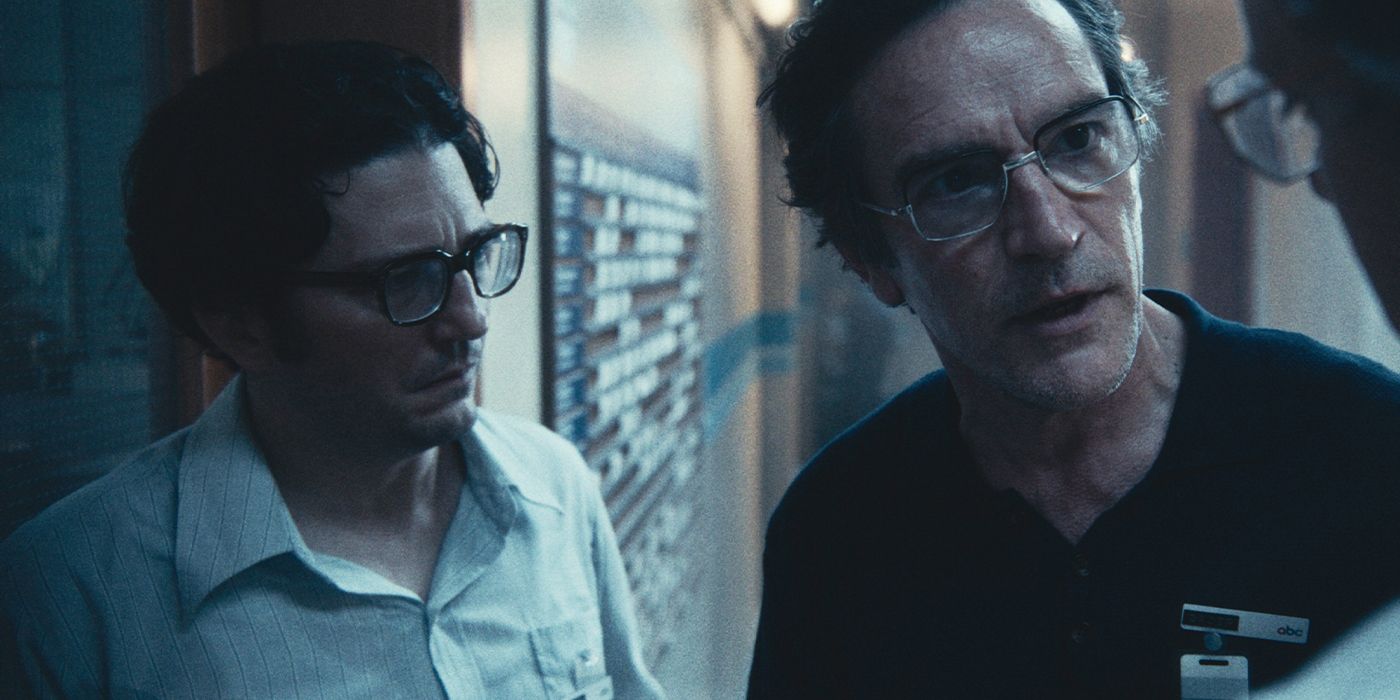 Image via Paramount Pictures
Image via Paramount Pictures
MAGARO: We had an amazing ensemble. In a lot of ways, it was like a play, and that goes down to our supporting actors and our background actors. Everyone was there most of the days, and everyone was focused and working. Then, on top of that, we had an amazing production design team, camera crew, and we were all dancing together. It was in a lot of ways like a documentary, like a reality show. You had this camera crew, and you had to navigate through them. You never really knew what they were gonna film, so everyone had to be present and doing their job. They are set. They gave us all the tools to work with. They gave us a playground to play on. It was a ship that Tim set on a great course and navigated us through it.
BENESCH: And he doesn't necessarily tell you if you're gonna be in this particular shot because, as you mentioned earlier, he has a thing he calls the “wild style,” where it's quite wild.
MAGARO: It might be on you, so you better be ready. But it keeps us on our toes, and we're all game.
What Is Tim Fehlbaum’s “Wild Style?"
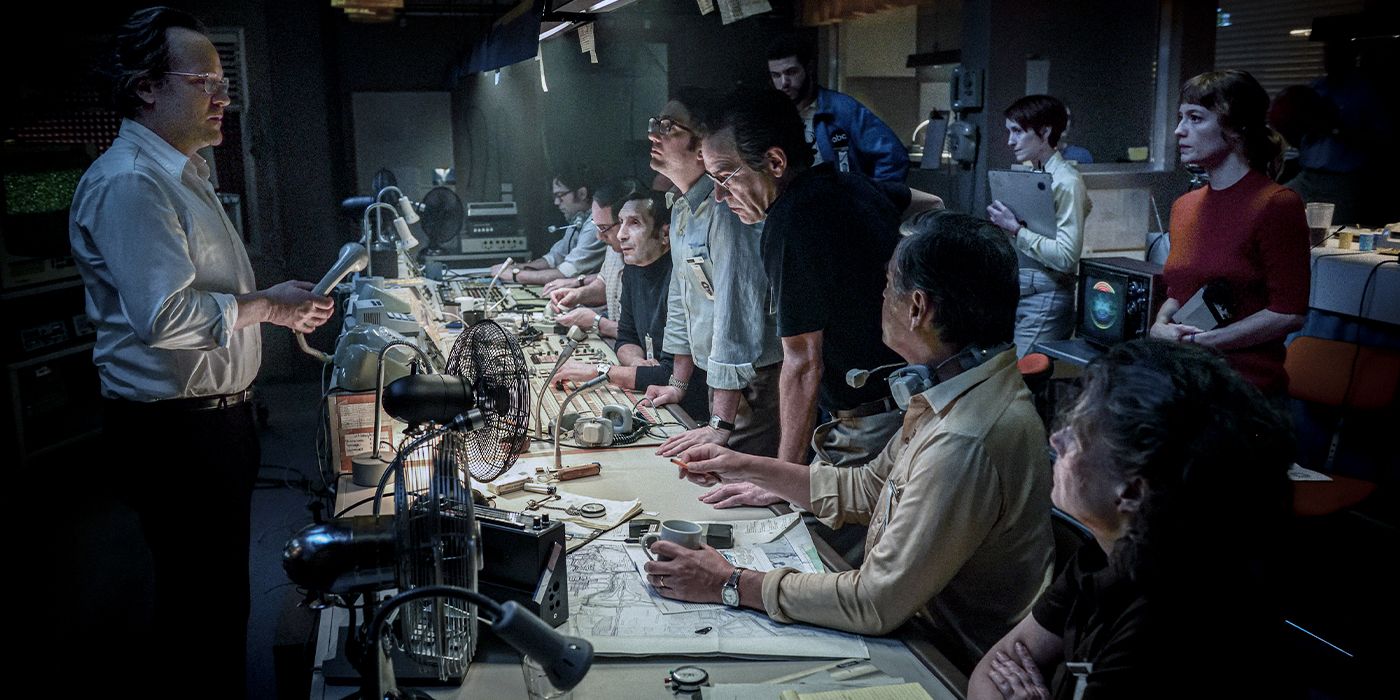 Image via Paramount Pictures
Image via Paramount Pictures
What was it like for you actually watching the finished film for the first time and seeing what he captured? That sort of manic energy.
MAGARO: I was most impressed by the editing. [Hansjörg Weißbrich] did amazing work. This was not an easy thing to edit because there was that “wild style,” like we said–
BENESCH: We shot so much footage.
MAGARO: So much footage.
BENESCH: And then there was all the original material like the–
MAGARO: –the Jim McKay stuff and all that. It blew me away.
BENESCH: Yeah, same.
The 'September 5' Ending Had to Be Reshot: "It Felt Wrong"
“We had some really tough discussions around changing the lines.”
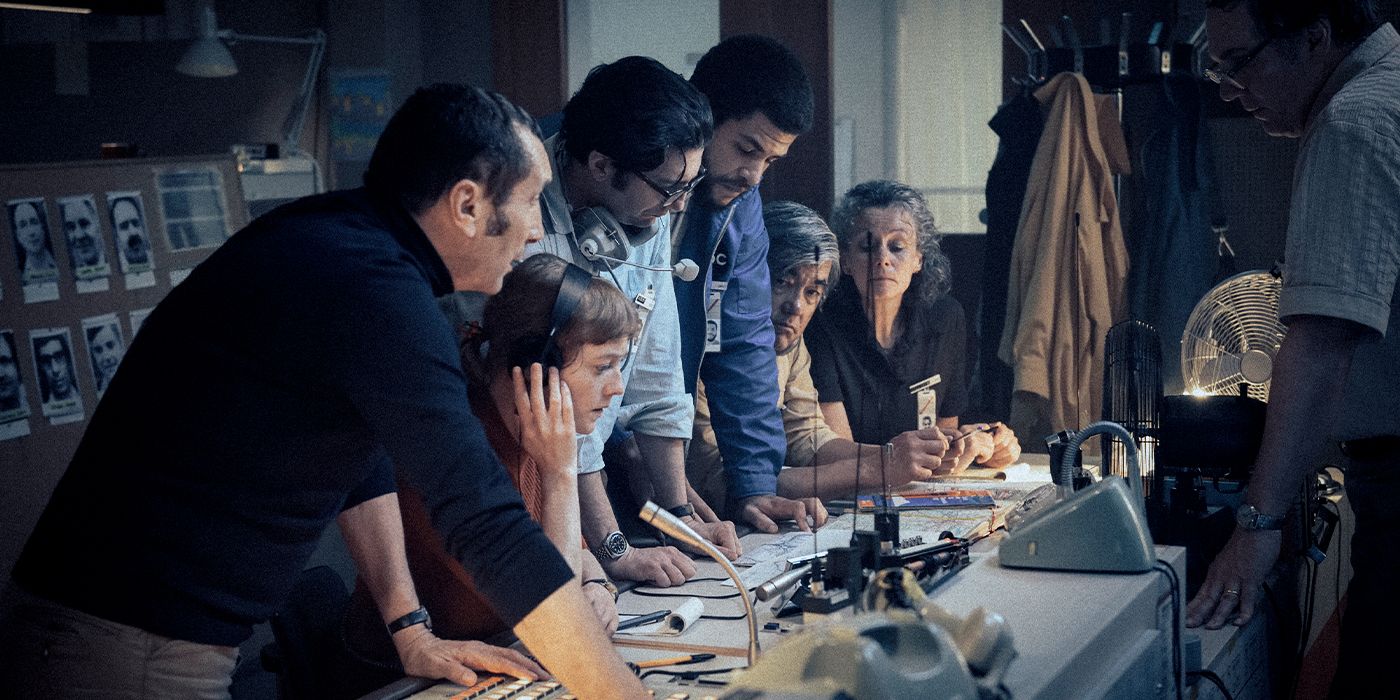 Image via Paramount Pictures
Image via Paramount Pictures
I'm always curious about what shot or sequence in the film ended up being the toughest to pull off because of, say, a camera move, dialogue, whatever it may be?
MAGARO: I think we're gonna say the same thing.
BENESCH: I think you should talk about the thing that you said.
MAGARO: The answer for that, that we both agree on, is our scene at the end. I'll let her talk about why that is, but I didn't find that actually that difficult because I had the training. They said they're impressed by how I called the show. Like when we go live, and I'm calling the show, which is, in theory, really difficult. But because I had two months of research in control rooms under my belt, and really got a really solid understanding of how you call a show, it made that much easier for me. It just felt like second nature doing it. I had time to work with the headsets and all that stuff. So I felt very comfortable. It had become like an extra appendage. That sounds weird. [Laughs] I learned the magic trick, so it seemed more impressive than it was, but she'll tell you.
BENESCH: Yeah, the scene at the end between Jeff and Mariana after the whole thing happened was written in a different way. We'd shot it earlier on, and I think we all realized — you, Tim, I, and Morgan and the producers — it wasn't working, so we had to redo it. On the day we then ended up shooting it, we had some really tough discussions around changing the lines because the way it was written was a little too on the nose, we felt.
MARGARO: Almost like melodramatic.
BENESCH: We felt like you were explaining the film at the end.
MARGARO: It felt wrong.
BENESCH: If we trust that we are making the film that we think we are making, then we don't need it this spelled out. We need emotions to be withheld, and we need to have two people who just experienced something but can't talk about it yet.
MARGARO: And it was a genuine collaboration, which you don't often get when you're making a film. But this was a true collaboration across the board, and I think that's why it works.
September 5 is now playing in theaters.
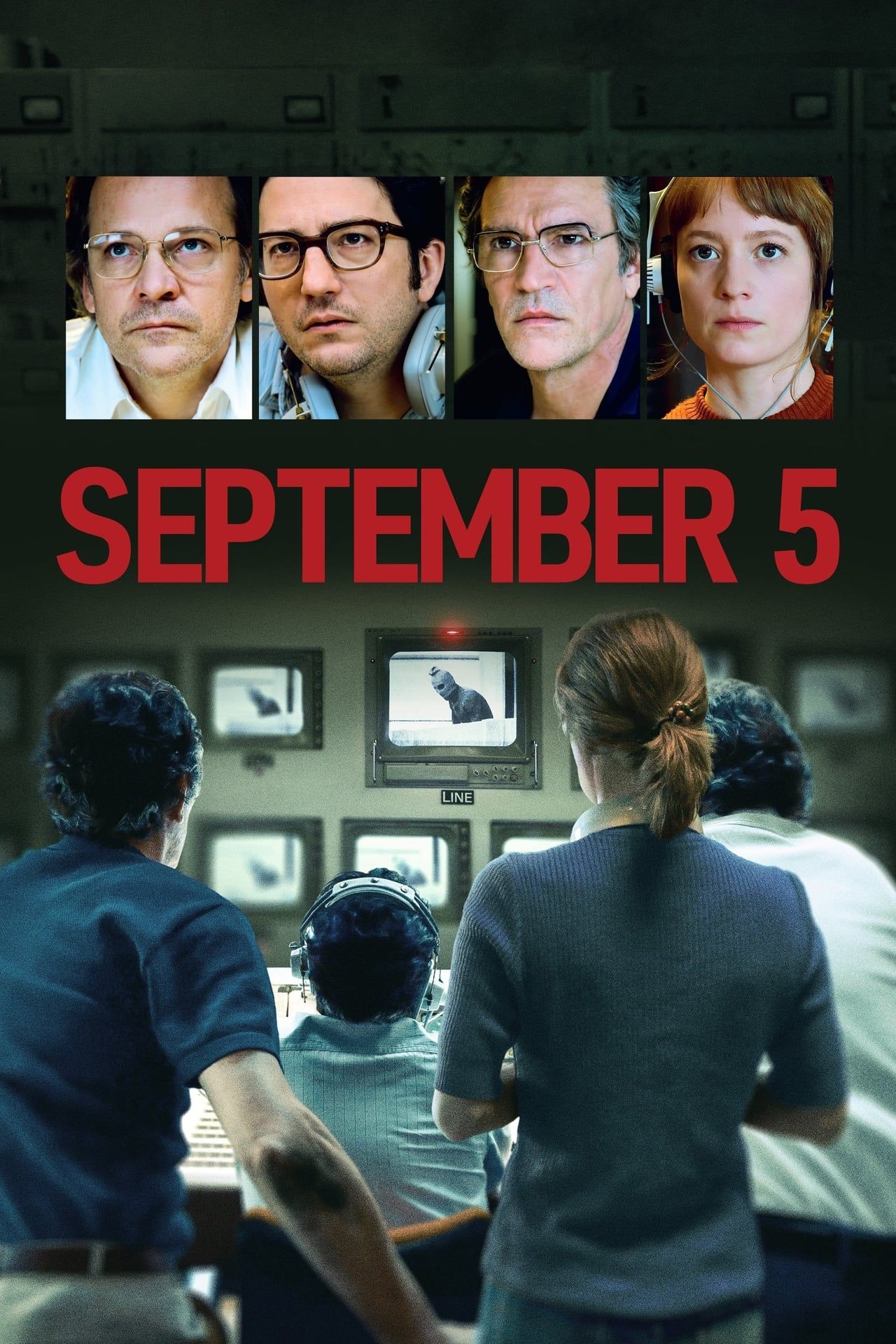
Your changes have been saved
During the 1972 Munich Olympics, an American sports broadcasting crew finds itself thrust into covering the hostage crisis involving Israeli athletes.
Release Date November 29, 2024
Director Tim Fehlbaum
Runtime 91 Minutes
Writers Tim Fehlbaum , Moritz Binder

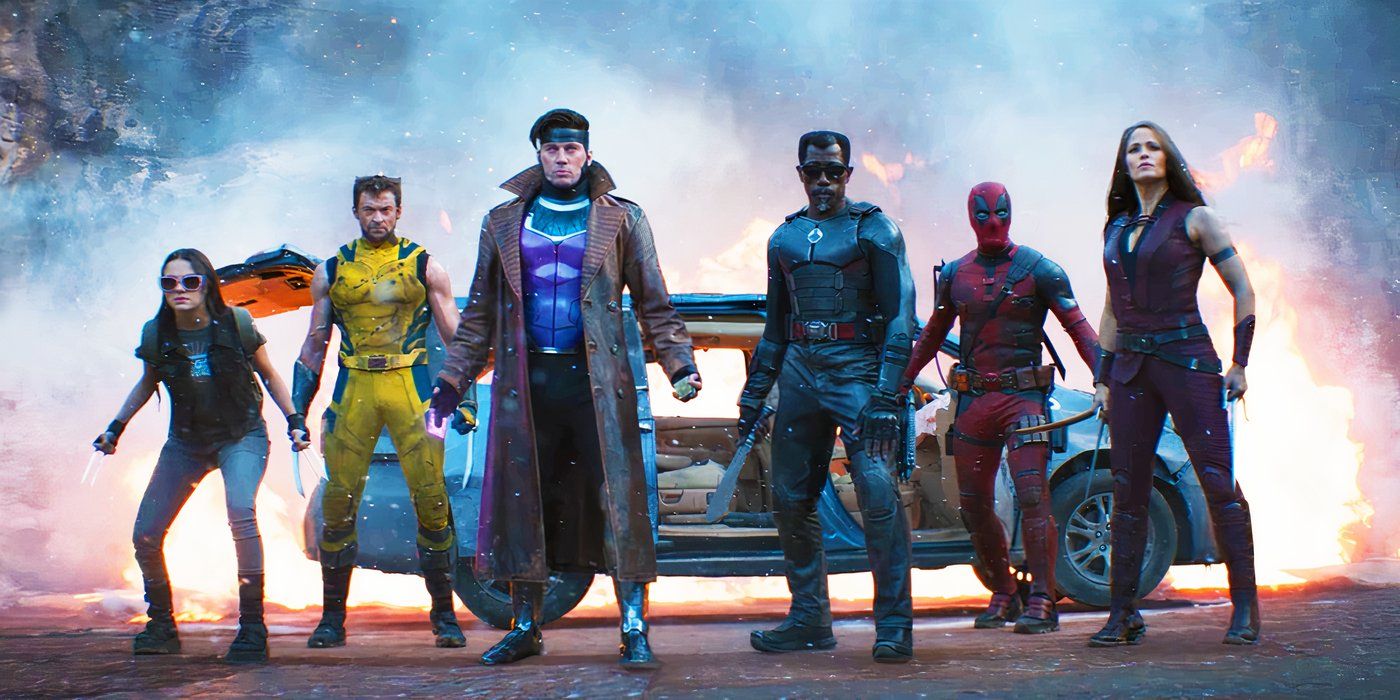

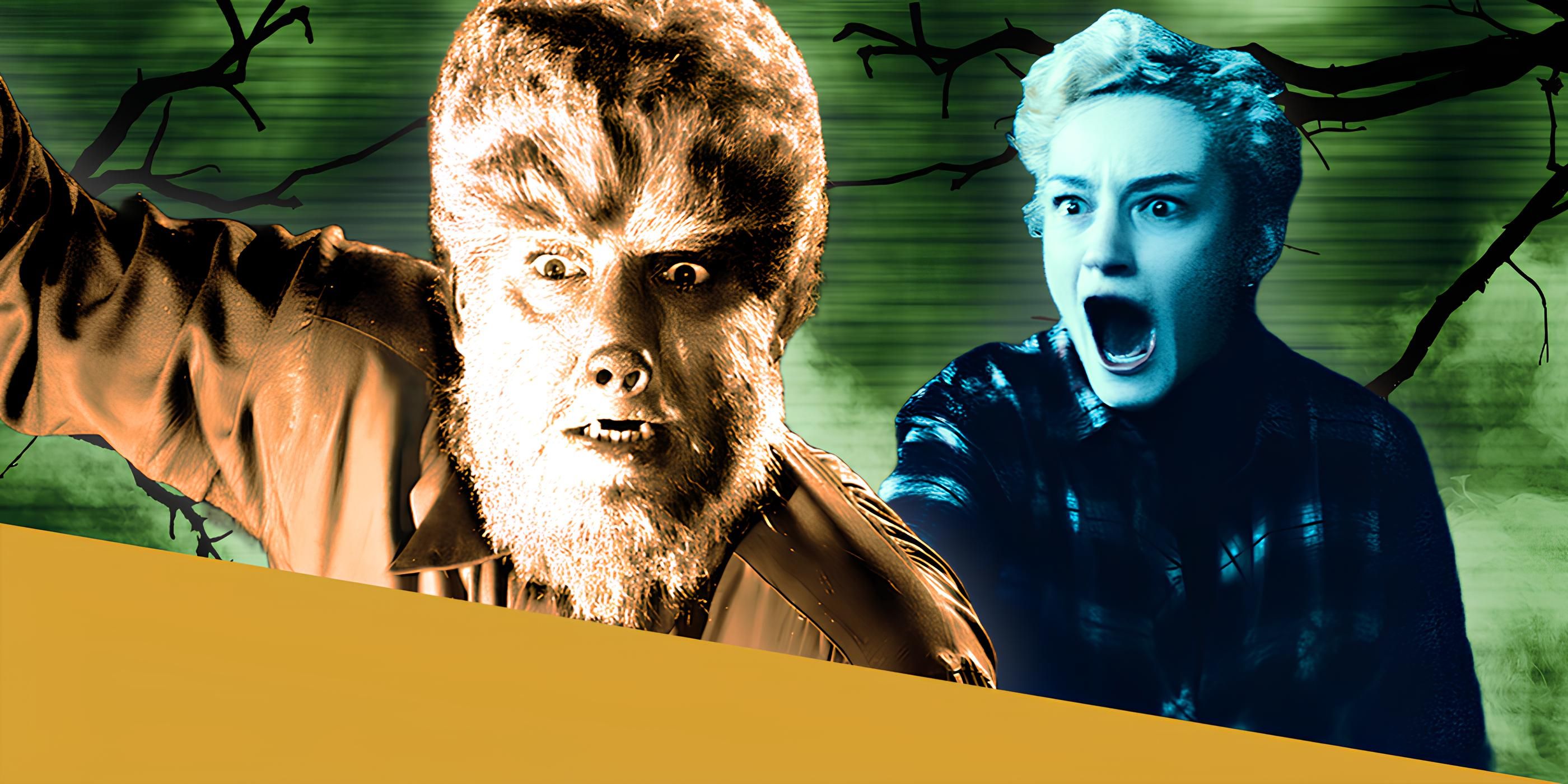





 English (US) ·
English (US) ·